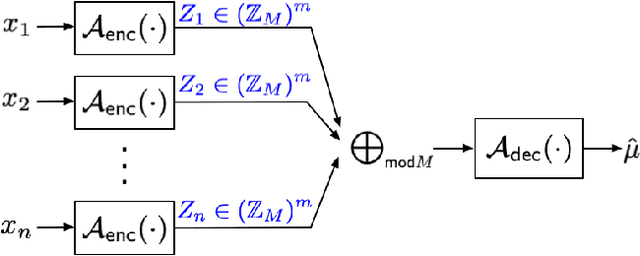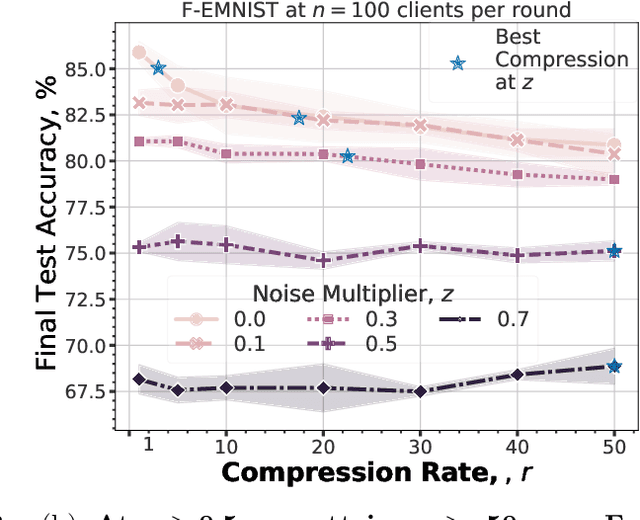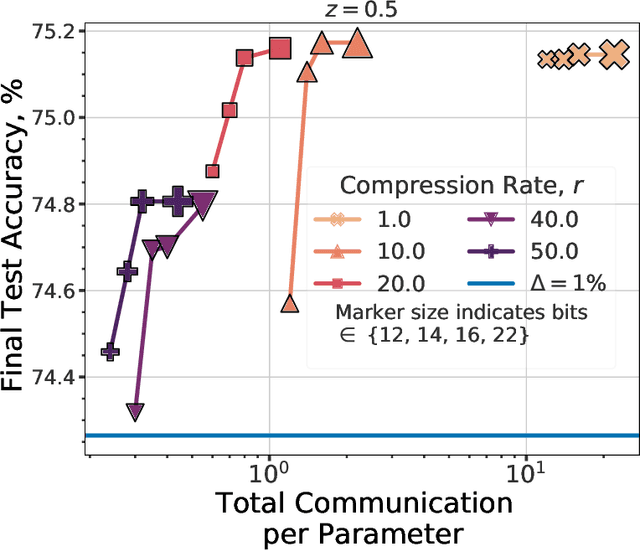The Fundamental Price of Secure Aggregation in Differentially Private Federated Learning
Paper and Code
Mar 07, 2022



We consider the problem of training a $d$ dimensional model with distributed differential privacy (DP) where secure aggregation (SecAgg) is used to ensure that the server only sees the noisy sum of $n$ model updates in every training round. Taking into account the constraints imposed by SecAgg, we characterize the fundamental communication cost required to obtain the best accuracy achievable under $\varepsilon$ central DP (i.e. under a fully trusted server and no communication constraints). Our results show that $\tilde{O}\left( \min(n^2\varepsilon^2, d) \right)$ bits per client are both sufficient and necessary, and this fundamental limit can be achieved by a linear scheme based on sparse random projections. This provides a significant improvement relative to state-of-the-art SecAgg distributed DP schemes which use $\tilde{O}(d\log(d/\varepsilon^2))$ bits per client. Empirically, we evaluate our proposed scheme on real-world federated learning tasks. We find that our theoretical analysis is well matched in practice. In particular, we show that we can reduce the communication cost significantly to under $1.2$ bits per parameter in realistic privacy settings without decreasing test-time performance. Our work hence theoretically and empirically specifies the fundamental price of using SecAgg.
 Add to Chrome
Add to Chrome Add to Firefox
Add to Firefox Add to Edge
Add to Edge